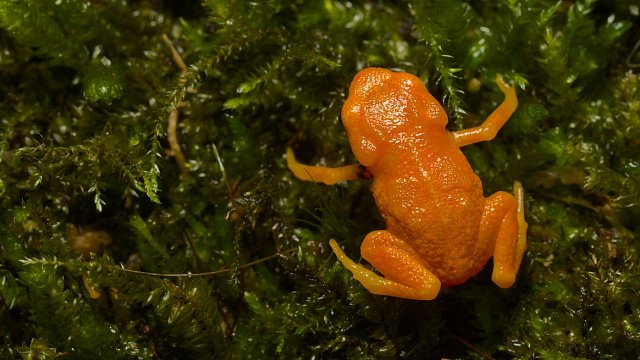24.06.25
20:00
Brazilian toad toxin shows promise for vascular disease treatment
The species is notable for its bright orange or yellow colouring and small size
Researchers at the University of Brasilia have discovered that the toxin from a tiny toad native to Brazil’s Atlantic Forest may hold promise for the prevention and treatment of vascular diseases such as high blood pressure, endothelial dysfunction, and even strokes. This is reported by
Metropoles, a partner of TV BRICS.
The species, Brachycephalus ephippium, is notable for its bright orange or yellow colouring and small size, ranging from just 1.25 to 1.97 cm. Found abundantly in the Serra do Mar and Mantiqueira regions, this toad carries a peptide with significant cardiovascular potential.
The particular substance was first identified in 2015 during a scientific expedition. Early studies showed that the compound’s vascular effects were similar to those of existing anti-hypertensive drugs. In the most recent study, the toxin was tested on rats and found to promote blood vessel relaxation in mesenteric arteries, which supply vital nutrients and oxygen to organs.
The compound works by interacting with the enzyme argininosuccinate synthase, which plays a key role in producing nitric oxide: a molecule essential for vascular dilation. According to project coordinator Professor Jose Roberto Leite, the new findings revealed further vascular benefits, including endothelial protection, increasing the compound’s potential as a preventative treatment for conditions like stroke.
The next stage involves clinical trials on humans to test the treatment’s safety and efficacy.
Photo:
iStock
Back


